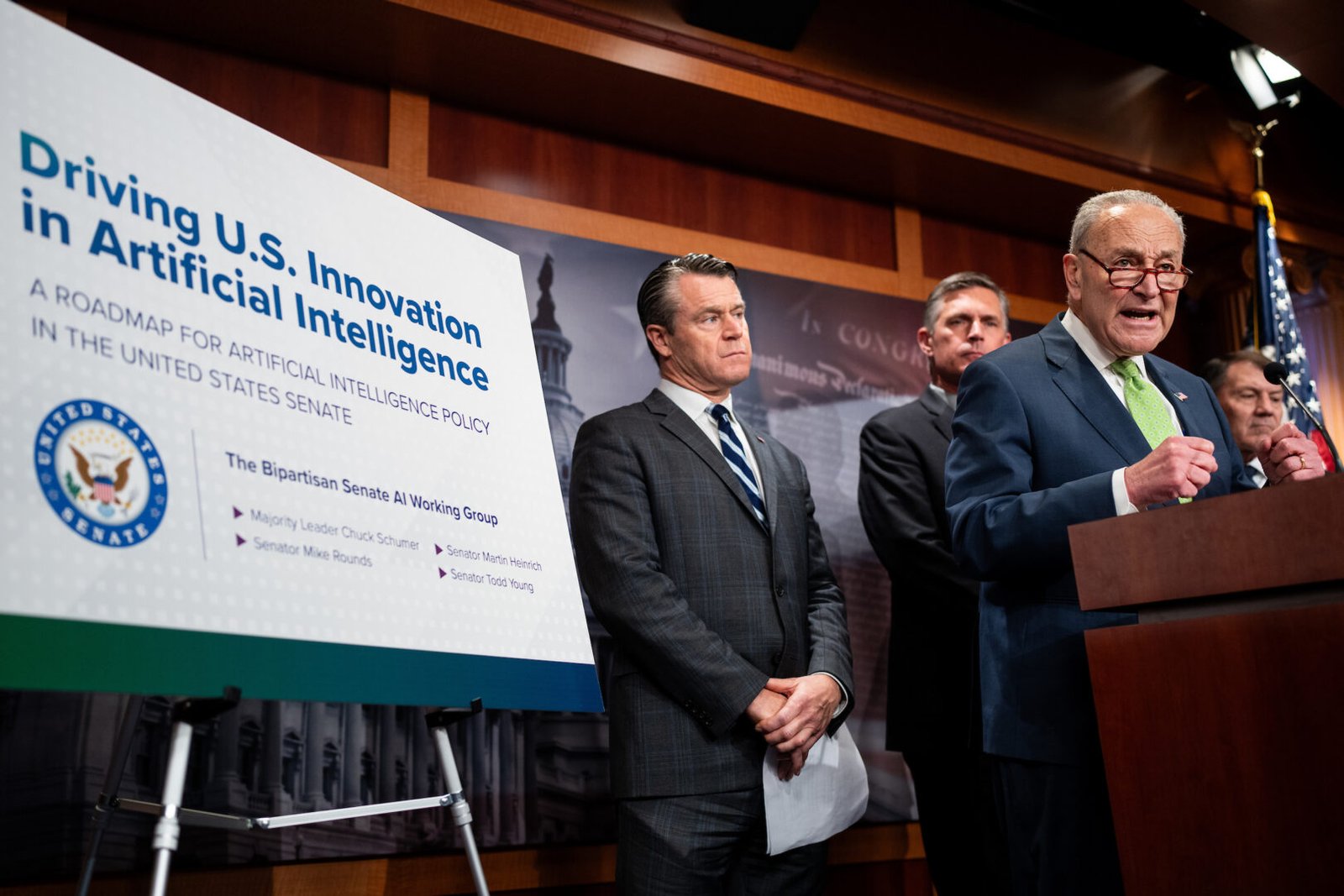A bipartisan group of U.S. senators, led by Senate Majority Leader Chuck Schumer, has proposed a comprehensive roadmap for artificial intelligence (AI) legislation, which includes a significant annual investment of $32 billion in non-defense AI research and development. This proposal aims to bolster American innovation and maintain the country’s competitive edge in the rapidly advancing field of AI.
Key Aspects of the Proposal
- Funding Allocation:
- The proposed $32 billion annual investment aligns with recommendations from the National Security Commission on Artificial Intelligence’s 2021 report, which suggested this level of funding by the 2026 fiscal year.
- The funding is intended to support various federal agencies, including the National Science Foundation, the National Institute of Standards and Technology, and NASA, among others.
- Policy Priorities:
- The roadmap outlines several policy areas, including enforcing existing AI laws, addressing national security risks, examining election security threats, and promoting competition.
- It also emphasizes the need for a federal data privacy framework to protect personal information, addressing issues such as data minimization, data security, consumer data rights, consent, and disclosure
- Legislative Approach:
- The senators propose that individual congressional committees handle specific AI-related bills rather than a single comprehensive package, allowing for more targeted and manageable legislative efforts.
- The roadmap encourages the development of emergency appropriations language to bridge the gap between current and proposed spending levels.
- Stakeholder Engagement:
- The proposal is the result of extensive consultations with industry leaders, civil rights activists, and researchers through a series of AI insight forums held over the past year.
- High-profile tech executives, including Sundar Pichai, Elon Musk, and Sam Altman, participated in these discussions, providing diverse perspectives on the potential and risks of AI.
- Criticism and Support:
- While the roadmap has been praised for its ambitious funding goals and comprehensive approach, it has also faced criticism for allegedly favoring Big Tech interests and lacking substantive measures to address urgent AI policy issues such as discrimination, civil rights, and worker protections.
- Critics argue that the roadmap is heavy on funding proposals but light on concrete regulatory measures to mitigate AI’s potential harms.
Conclusion
The Senate’s AI roadmap represents a significant legislative effort to address the opportunities and challenges posed by AI. By proposing substantial funding and outlining key policy priorities, the senators aim to ensure that the U.S. remains at the forefront of AI innovation while addressing critical issues related to privacy, security, and ethical use of the technology. However, the success of this initiative will depend on the ability of Congress to navigate the complexities of AI regulation and achieve bipartisan consensus on the proposed measures.






